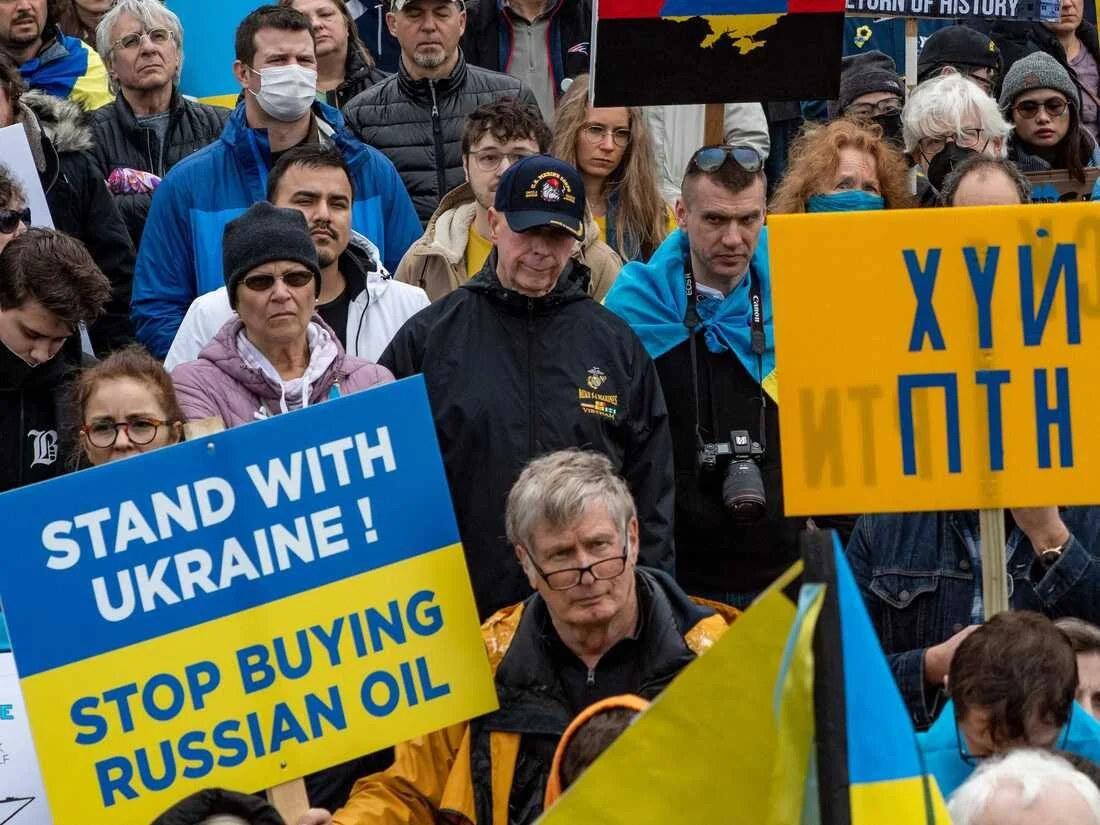Ken Smith wrote a question, “I was thinking about what is the status of McDonalds, Starbucks, and Soft Drink Companies in Russia. I recall the french fries matter. If these companies are being replaced by Russians where is the money coming from and how are the new companies getting raw materials, machine replacement, etc, etc, with the “strict”, “massive” sanctions in place? I recently read about a Country (do not recall name) participating in reducing fuel use from Russia but it will not take complete effect until January, 2023.”
Thank you, Ken.
Yes, what ever happened to McDonalds?
I know that all the McDonalds outlets were bought by a Russian millionaire. And, yes, most goods coming in as imports from European and American countries are not now available. For many goods, imports not available may be viewed as luxury goods and not having them is viewed as merely as a kind of annoyance, but some imports are essential - especially computer chips and other technology. Russia is like any other industrial state and is deeply dependent on technology for its cars, its tanks, its missiles, and its ships.
But, another interesting story is that when famous brand names like Coca Cola left Russia, the Russian government adopted a decree allowing Russian businesses to steal patents from countries deemed "unfriendly," such as the United States and United Kingdom. Russian producers, effectively pointing their middle finger at Western businesses previously ensconced in Russia, are copying Western products (in some manner) and have just rebranded them with the same Western name or a made-up name. So Russian knockoffs of Coke’s Fanta drinks are being sold - drinks with names such as "Fantola” have flooded the market. Russian courts, ruling against foreign firms, have shown no sympathy to foreign businesses suing under copyright and patent laws.
Who is banning Russian oil in 2023?
The United States has already banned Russian oil, liquefied natural gas, and coal. And the European Union will drop the guillotine on Russian oil in 2023.
The European Union
By sea: All 27 members of the European Union nations will ban imports of Russian crude oil coming by sea as of December 5, 2022, and ban all petroleum products as of February 5, 2023.
By Pipeline: Pipeline imports of crude oil and petroleum products will be exempt, in a compromise with EU member states like Hungary, Slovakia, and the Czech Republic.
Germany and Poland will go one step further and will ban all oil products by sea and by pipeline by the end of 2022. This means that a total of 90% of Russian oil that is imported into Europe will be blocked. Wow!
Oil and gas are Russia’s largest exports - by far. In 2020, although Russia was the world's biggest exporter of wheat bringing in $10.1 billion, these numbers pale in comparison to Russia’s export of gas and oil at $142 billion a year.
To put things in perspective - In 2022, Russia earned $93 billion from fossil fuel exports in the first 100 days of the war- the EU imported 61% of this. In 2021, the largest importers of Russian oil and gas were China ($12.6 billion), Germany ($12.1 billion), Italy ($7.8 billion), Netherlands ($7.8 billion), Turkey ($6.7 billion), Poland (4.4 billion), and India ($3.4 billion). But this will all change in 2023.
Another big problem Russia may have is that if Russia wants to deliver its oil and gas abroad, then it needs ships. This is a key vulnerability for Russia — strong sanctions against tankers transporting Russian crude oil should significantly limit the ability of Russia to export its oil. In April-May, 68% of deliveries of Russian crude oil were made with ships owned by EU, UK and Norwegian companies, with Greek tankers alone carrying 43%. For deliveries to India and the Middle East, the share was even higher at 80%. On top of that, 97% of the tankers were insured in just three countries, UK, Norway and Sweden.
Economists predict that the anticipated decline of Russian exports of oil and gas could effectively wipe out about 18 years' worth of production gains.

